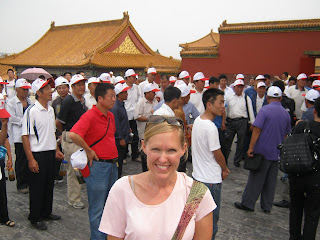
The Old Guard that currently runs the country will one day be replaced by a new generation of leadership that did not come to power in the shadow of Mao’s legacy. A new generation is coming down the line that has managed work-arounds to get past China’s notorious Great Fire Wall that limits access to the internet and they’ve seen the movie “To Live.” They have a much fuller pictures of where China has been and what alternative futures could look like.
The big fear at the time of the handover was that Hong Kong was going to be absorbed into and become indistinguishable from the rest of China. But fourteen years into the fifty-year grace period, Hong Kong is holding steady. It is China that is changing. It’s not necessarily that Hong Kong with her seven million people exerts undue influence on the rest of China with its 1.3 billion. Rather, as China seeks to become a more fully integrated member of the world community, its people will start to demand some of the same freedoms and rights that so many of their compatriots form around the world –including in Hong Kong- have been enjoying for years.
Thomas Jefferson observed that the natural order of things is for the State to encroach and for individual liberty to recede. While Jefferson was right, it is also true that humans have never stood by idly and let nature have it way. We fight back against the forces of nature. It is why the people of China built an enormous damn to control the raging floodwaters of the Yangtze. It is how the people of Hong Kong have carved out for themselves a secure and prosperous future from an oversized rock with few natural resources in the South China Sea.
An argument can be made that the ninetieth century belonged to the British, the twentieth century to The United State, and that the Twenty-first century will belong to China. In the least, with her sustained eight-percent annual growth, China will play an increased role in the world. How big of a role is yet to be determined. More importantly, it is yet to be determined what exactly this new, more prominent China will look like.
China has learned from the missteps in the 1960 and 70s that grew out of it experiments with a command-and-control economy. It has started to liberalize it markets. So far, so good. Now we can only hope that Beijing sees the benefits and rightness of bringing the same liberalization to the personal lives of its people.
My prediction? Free minds are an inevitable companion to free markets. Liberty will prevail.
When the handover happened in 1997, the question that lingering in the air on that rainy July day was “Who will change who?” Where on the field of history will these two divergent societies converge?
Thirty-six years from now, when the handover is complete, China in 2047 –with its greater prosperity and inevitable gains in personal freedoms- will resemble Hong Kong at the time of the hand-over more than Hong Kong of 2047 will resemble the China of 1997.


























